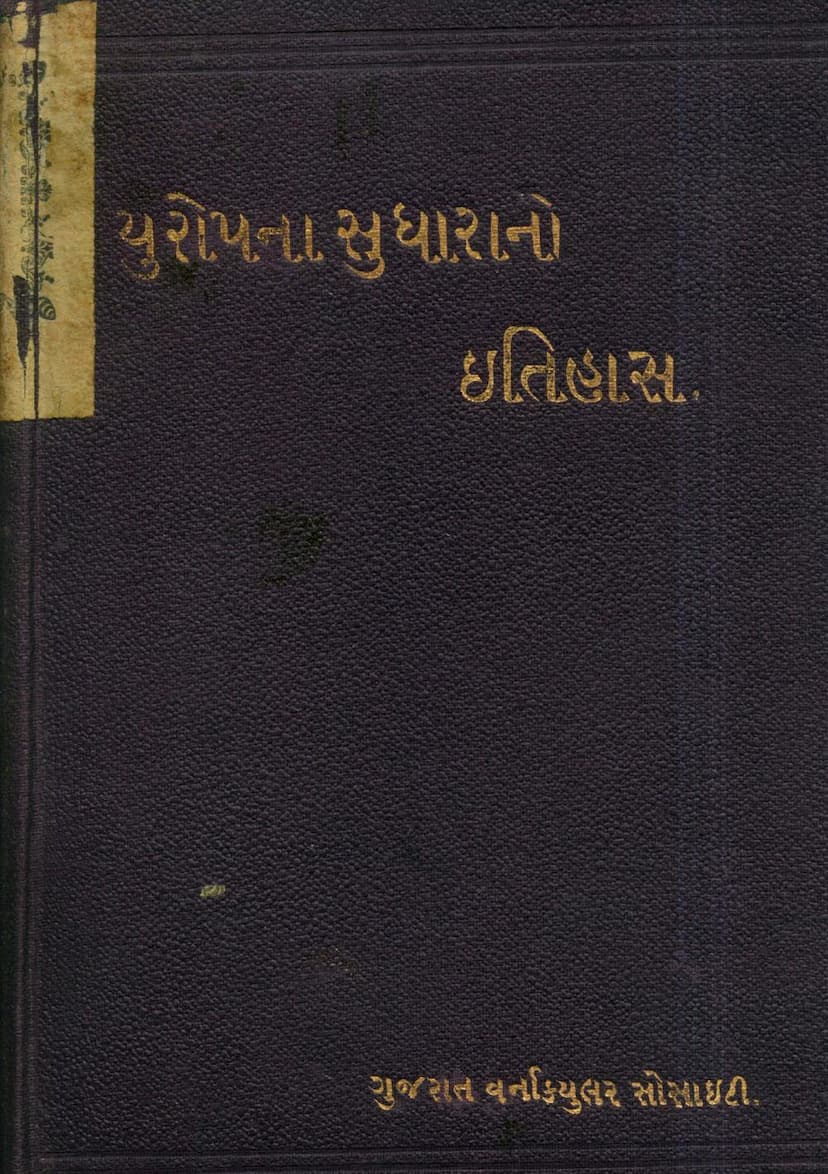Europena Sudharano Itihas
Added to library: September 1, 2025

Summary
This Jain text, "Europena Sudharano Itihas" (History of European Reformation) by Atisukhshankar K Trivedi, published by the Gujarat Vernacular Society in 1913 (Samvat 1970), is a Gujarati translation of selected lectures by the renowned French historian François Guizot on the history of European civilization.
The book aims to provide Gujarati readers with a concise understanding of the progress of European nations. The translator, Atisukhshankar K Trivedi, M.A., LL.B., Professor of Logic and Moral Philosophy at Gujarat College, Ahmedabad, has focused on the introductory lectures of Guizot's work, omitting complex historical events and difficult European names for clarity.
The book's preface and introduction delve into Guizot's life, highlighting his intellectual journey and the challenging circumstances of his birth during a period of religious intolerance in France. It also explores the concept of "progress" itself, differentiating between material advancement and the more crucial moral and intellectual progress. Guizot's perspective on progress, emphasizing the development of both social conditions and individual human potential, is presented.
The "Index" (Anukramanika) outlines the fourteen lectures covered in the book, which systematically trace the history of European reformation and civilization, starting from the fall of the Roman Empire and examining various influential elements like the role of cities, royal reforms, the impact of foreign peoples, and the evolution of concepts like individual liberty and societal duties.
The text then proceeds with the lectures, beginning with "Lecture First: The History of European Reformation," which sets the stage by defining "reformation" or "progress" as encompassing both societal and individual advancement. It discusses the challenges of understanding and depicting progress, acknowledging that humanity never reaches an ultimate peak.
Subsequent lectures cover the initial state of Europe after the fall of the Roman Empire, the characteristics of ancient versus modern progress, and the influence of various societal elements. The book meticulously examines the period from the 5th to the 15th centuries, detailing the emergence and evolution of key institutions and ideas that shaped European civilization. It highlights the contributions of the Christian community as a significant social force, the development of feudalism, the role of cities, and the impact of foreign invasions.
The latter part of the book delves into the 15th century, focusing on the growing unification of European states, the rise of monarchy, and the early stirrings of intellectual and scientific advancements. It touches upon significant figures and movements like the Renaissance, the explorations, and the nascent stages of the scientific revolution.
Overall, "Europena Sudharano Itihas" offers a structured and accessible overview of the formative periods of European history and civilization, as interpreted through the lens of François Guizot and presented in Gujarati by Atisukhshankar K Trivedi. The book emphasizes the complex interplay of social, political, and intellectual forces that contributed to the shaping of modern Europe.